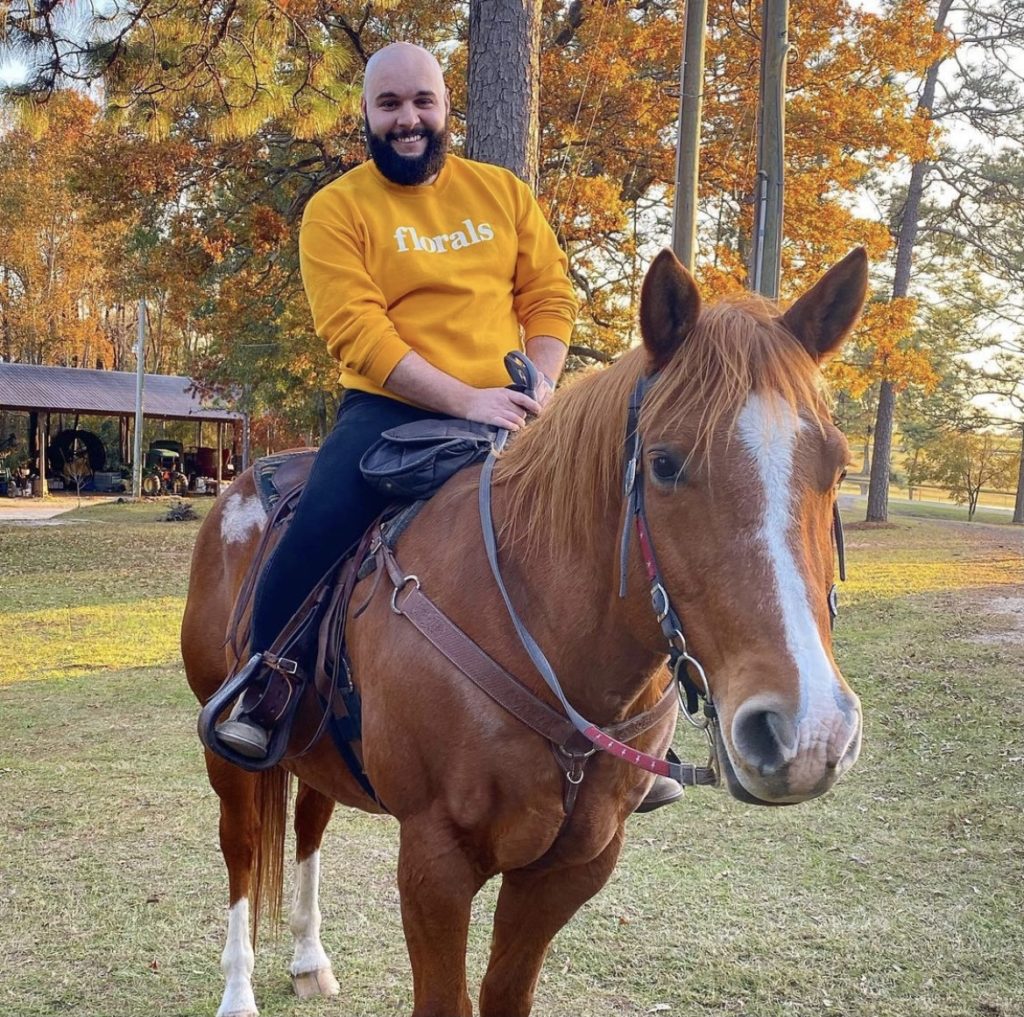Ethan Hawkland is assistant director of admission at Oglethorpe University.
“I grew up 18 years on the family farm in the same house. I’m from a very small town called Collins, Georgia, where the closest grocery store is 30 minutes away. My family has lived in that town for generations, passing the farm down from my great-grandfather to my grandfather, and so on. I am an only child, so I didn’t have siblings, went to the same school for 14 years, lived in the middle of nowhere; I spent my whole life there. The first major move I had was when I went to college at Berry, all the way up in Rome, Georgia.
Our farm is nice, in terms of that it does well for my family. But you have to understand that we live near Vidalia, and Vidalia sweet onions are a very big thing. The year that onions got really, really big, my grandfather did not get into the onion business. Because the way that farming works is you have to choose what crop you’re going to grow that year, and nobody knew that onions were really going to take off. So, the year they did, if you happened to already be in the onion business, you were set. But we didn’t grow onions that year. So we aren’t big-time onion farmers like a lot of people are down there. Our farm mostly consists of peanuts, soybeans, and then poultry chicken and beef cattle.

Ethan on a 2019 visit to the family farm
Then we have our personal gardens. You have what you farm to make your profit, and then you have what you farm to provide for your family. So, the peanuts, and the soybeans, that’s where you make your profit. But the family gardens are smaller, more intimately sized gardens that we grow for what we store for the winter—snap peas, cabbage, tomatoes, potatoes, things of that nature.
In the summer, we woke up at seven in the morning and went to the garden. We picked peas, or shucked corn all day, or whatever it was. It’s a very involved process. It’s not necessarily how you make your living, but it’s very much your way of life. But for the most part—and now my friends like to pick on me for this—if we didn’t grow it, I didn’t eat it. We had home-cooked meals all the time, because there wasn’t really anywhere else to eat.
My job growing up was cutting grass. I cut the grass for my great-grandmother, for my parents, and around the farm. From there, I upgraded to driving tractors and actually baling hay. My job in high school was baling hay—that was my thing. And funny enough, when you go to Berry, their big thing is their premiere student work program. 99 percent of their students have a job on campus. And when you apply to Berry, they ask about your previous work experience, so they know where to place you.
My first job at Berry was farm maintenance—field work at the equine center. And I was like, this is all I’ve ever done my entire life—I need something different! I ended up getting a job in campus scheduling, which was my first office desk job. That’s where I really fell in love with that type of work, and working in higher ed. It was a completely different experience than I had on the farm.
Living in Atlanta is like living on a different planet. It goes back to the food thing, and how my friends make fun of me for only ever eating what we grew on the farm. I wouldn’t say I’m a picky eater, but I’m very much a creature of habit. I know if I’m going to HobNob, I’m going to get the Down South burger with no fried green tomatoes. A lot of times, I only try new foods when I’m in mixed company, and maybe they’ll let me try something off their plate.
The biggest thing my friends give me a hard time about is sushi. I never grew up eating anything like it—the first time I had celery was literally the first week I started working here. Because we didn’t grow it on the farm! And I didn’t have broccoli until college. There’s plenty that I haven’t had. But I will say I’ve been eating a lot of sushi lately. I even had shrimp tempura the other day. I’d like to do more exploring, and Atlanta seems to be the best place to do it.”
